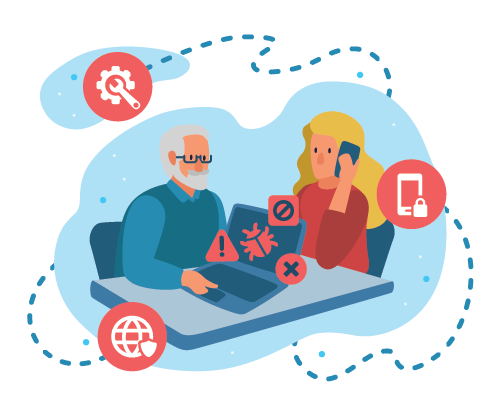- Details
![]()

This tip sheet is available in:
![]() Arabic - Can't Afford My Bill 477.55 KB
Arabic - Can't Afford My Bill 477.55 KB
![]() Simplified Chinese - Can't Afford My Bill496.24 KB
Simplified Chinese - Can't Afford My Bill496.24 KB
![]() Spanish - Can't Afford My Bill449.6 KB
Spanish - Can't Afford My Bill449.6 KB
![]() Tagalog - Can't Afford My Bill442.07 KB
Tagalog - Can't Afford My Bill442.07 KB
![]() Vietnamese - Can't Afford My Bill462.14 KB
Vietnamese - Can't Afford My Bill462.14 KB
Read more: Can't Afford My Bill - Information in other languages
- Details
![]()

This tip sheet is available in:
![]() Arabic - Choosing a Mobile Plan390.24 KB
Arabic - Choosing a Mobile Plan390.24 KB
![]() Simplified Chinese - Choosing a Mobile Plan410.95 KB
Simplified Chinese - Choosing a Mobile Plan410.95 KB
![]() Spanish - Choosing a Mobile Plan390.9 KB
Spanish - Choosing a Mobile Plan390.9 KB
![]() Tagalog - Choosing a Mobile Plan387.85 KB
Tagalog - Choosing a Mobile Plan387.85 KB
![]() Vietnamese - Choosing a Mobile Plan346.66 KB
Vietnamese - Choosing a Mobile Plan346.66 KB
Read more: Choosing a Mobile Plan - Information in other languages
- Details
![]()
Easy English focuses on presenting key information rather than all the detail. Words are combined with images to enhance the message for the reader. Ideally, reading an Easy English document is a shared activity between the reader and another person, such as a friend, a family member or support person.
ACCAN has produced the following guides in Easy English.
Read more: Information in Easy English
Write comment (0 Comments)- Details

Phone and internet bills can quickly add up. To help you keep costs down, we’ve pulled together our top mobile and broadband money saving tips.
Read more: Mobile and Internet Money Saving Tips
Write comment (1 Comment)- Details

If you are unhappy with the service you are receiving from your telco, you can make a complaint.
How to make a complaint
Your telco will have information on their website on how to make a complaint. The steps below can help make it easier:
- Clearly state at the beginning that you are making a complaint and explain what it’s about.
- Save any emails and keep details of phone conversations (date, time and person you spoke with). If you use live chat on your telco’s website, make sure you save a copy of the conversation. You can do this by taking a screenshot on your computer, phone, or tablet. You can also take a photo of the conversation, or print it out.
- Details

If you are unhappy with the service you are receiving from your telco, you can make a complaint.
Telcos have to follow rules about when small businesses can be disconnected, help they must provide if you can’t pay a bill, and more. If your small business spends less than $40,000 per year with one telco for your internet, landline and mobile phone services, you’re protected by these rules.
Read more: Making a Complaint - Small Business
Write comment (0 Comments)- Details

The National Broadband Network (NBN) is Australia’s wholesale internet provider. This means that when you sign up for an NBN plan, you must order the service through a telco (e.g. Telstra, Optus, TPG).
Read more: Choosing a Small Business NBN Internet Plan
Write comment (0 Comments)- Details

Sometimes people are unable to pay their bills due to illness, unemployment, experiences of domestic or family violence, or other changes in circumstances.
It’s important not to ignore your bill, because there is help available.
Read more: Can’t Afford My Bill
Write comment (0 Comments)- Details

Scammers are constantly changing the ways they work and adapting to new technologies. To keep yourself safe, it’s important to know how scammers can use phones and the internet to try to profit from your personal information.
Read more: Avoiding Phone and Internet Scams
Write comment (6 Comments)- Details

Data and internet use
Track your usage
To avoid excess usage charges or running out of data, it’s important to know how much data is included with your phone plan. Once you know your data allowance, you can set a usage limit on your mobile phone. This can be done in your phone’s settings.
Read more: Using Your Mobile Phone
Write comment (0 Comments)- Details

Prepaid or postpaid?
There are a wide range of pre and postpaid plans available on the market. The main benefit of using postpaid is that you can buy a new phone with these plans, while prepaid plans may be better if you want to avoid unexpected extra charges and already have a mobile phone.
Read more: Choosing a Mobile Plan
Write comment (0 Comments)- Details

If you live in an urban area, it is likely that your home phone services will no longer be provided on Telstra’s network. Instead they will be provided over the NBN.
This means that even if you only want to keep your home phone service, you still need to connect to the NBN.
Read more: Connecting and Using Your NBN Home Phone Service
Write comment (0 Comments)